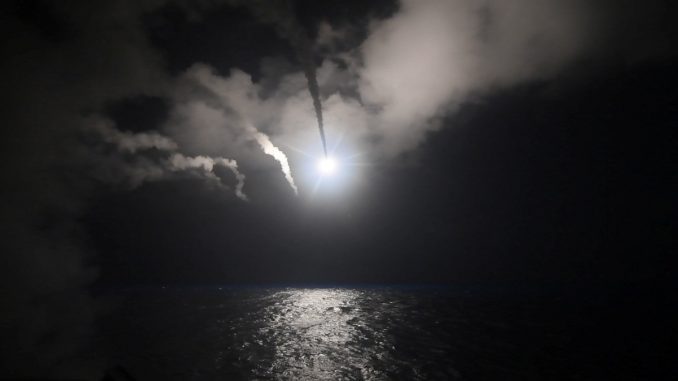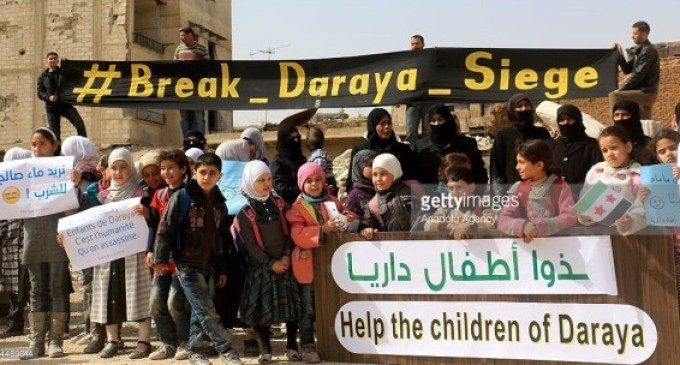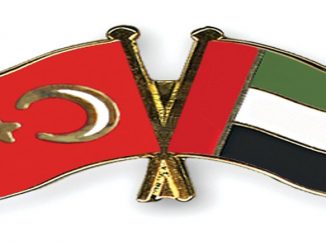
The United States has targeted a military airfield belonging to Assad regime in Syria with nearly 60 Tomahawk missiles, launching a wide international dispute over this issue as US allies expressed support while other parts voiced rage and concerns.
In a sharp escalation of the U.S. military role in Syria, two U.S. warships fired dozens of cruise missiles from the eastern Mediterranean Sea at the airbase controlled by Assad regime forces in response to the deadly poison gas attack in a rebel-held area on Tuesday, U.S. officials said.
Fifty-nine Tomahawk missiles were launched from the USS Porter and USS Ross around 8:40 p.m. EDT, striking multiple targets – including the airstrip, aircraft and fuel stations – on the Shayrat Air Base, which the Pentagon says was used to store chemical weapons.
The Pentagon also said it believes the strike has “severely damaged or destroyed Syrian aircraft and support infrastructure”.
The U.S. cruise missile attack was a “one-off,” a U.S. defense official told Reuters, meaning it was expected to be a single strike with no current plans for escalation.
Trump ordered the strikes just a day after he pointed the finger at Assad for this week’s chemical attack.
“Tonight I ordered a targeted military strike on the airfield in Syria from where the chemical attack was launched.”
“It is in this vital national security interest of the United States to prevent and deter the spread and use of deadly chemical weapons.”
“There can be no dispute that Syria used banned chemical weapons, violated its obligations under the chemical weapons convention, and ignored the urging of the UN security council.”
“Years of previous attempts at changing Assad’s behaviour have all failed and failed very dramatically,” Trump said on Thursday.

How did Assad and his allies react?
Syrian state TV said that “American aggression” had targeted a Syrian military base with “a number of missiles and cited a Syrian military source as saying the strike had “led to losses.”
Governor Talal Barazi told Reuters the attack served the interests of “armed terrorist groups” including Islamic State, adding that the targeted air base had been providing air support for army operations against Islamic State east of Palmyra.
“Syrian leadership and Syrian policy will not change. This targeting was not the first and I don’t believe it will be the last.”
“The armed terrorist groups and Daesh [Isis] failed to target the Syrian Arab Army and Russian military positions,” Barazi said.
Russia, which has been bombing rebel-held areas in Syria in support of President Bashar al-Assad since September 2015, condemned the strikes, saying Washington’s action would “inflict major damage on US-Russia ties”, according to Russian news agencies.
In its first public response to the attack, the Kremlin labelled the US move as “aggression against a sovereign state in violation of international law”.
“Washington’s step will inflict major damage on US-Russia ties,” Dmitry Peskov, a spokesperson of Russian president Vladimir Putin, was quoted as saying.
Iran said it strongly condemned the missile strikes against the Syrian army’s Shayrat air base.
“Iran strongly condemns any such unilateral strikes … such measures will strengthen terrorists in Syria … and it will complicate the situation in Syria and the region,” ISNA news agency quoted Foreign Ministry spokesman Bahram Qasemi as saying.
In an apparent criticism of US strikes in Syria today, Iraq’s foreign ministry said “hasty measures could impact negatively anti-terror efforts” despite being a loyal ally to the US.
How did the rest of the world react?
Saudi Arabia said it “fully supports” the strikes, adding that it was a “courageous decision” by Trump in response to the alleged use of chemical weapons against civilians in Khan Sheikhoun.
“A responsible source at the foreign ministry expressed the Kingdom of Saudi Arabia’s full support for the American military operations on military targets in Syria, which came as a response to the Syrian regime’s use of chemical weapons against innocent civilians,” a statement carried by state news agency SPA said.
The statement said it holds the government of Assad responsible for the deaths of dozens of civilians in Khan Sheikhoun.
Other Gulf countries, including the United Arab Emirates, Bahrain, and Kuwait, also expressed support for the attacks.
Turkey, which hosts three million Syrian refugees, said it views the US missile strikes positively and called for the establishment of a no-fly zone, as well as safe zones, in Syria.
“What happened in Idlib on Tuesday proved again that the bloody Assad regime show complete disregard for the prospect of a political transition and efforts to enforce the ceasefire,” read a statement by presidential spokesman Ibrahim Kalin.
“The destruction of Sharyat airbase marks an important step to ensure that chemical and conventional attacks against the civilian population do not go unpunished.”
Israeli Prime Minister Benjamin Netanyahu said he supports the “strong and clear message” sent by the US strikes.
The Israeli military said it had been informed in advance of the attack.
“In both word and action, President Trump sent a strong and clear message today that the use and spread of chemical weapons will not be tolerated,” a statement from Netanyahu’s office said.
“Israel fully supports President Trump’s decision and hopes that this message of resolve in the face of the Assad regime’s horrific actions will resonate not only in Damascus, but in Tehran, Pyongyang and elsewhere.”
Japan’s Prime Minister Shinzo Abe told reporters: “Many innocent people became victims from the chemical attacks.
“Japan supports the U.S. government’s determination to prevent the spread and use of chemical weapons,” he said.
European Council President Donald Tusk also voiced support for the missile strikes.
“US strikes show needed resolve against barbaric chemical attacks. EU will work with the US to end brutality in Syria,” Tusk wrote on his Twitter account.
Britain said the US action was an appropriate response to the “barbaric chemical weapons attack” launched by the Syrian government, according to a spokesman for Prime Minister Theresa May.
“The U.K. government fully supports the U.S. action, which we believe was an appropriate response to the barbaric chemical weapons attack launched by the Syrian regime and is intended to deter further attacks,” a British government spokesman said.
French Foreign Minister Jean-Marc Ayrault said Russia and Iran needed to understand that supporting Assad made no sense and that the escalation of the U.S. military role in Syria was a “warning” to “a criminal regime”.
“Use of chemical weapons is appalling and should be punished because it is a war crime,” Ayrault told Reuters and France Info radio.
French President Francois Hollande and German Chancellor Angela Merkel issued statements saying Assad was solely to blame for the air strikes.
The Dutch government said: “The United States has given a clear signal that the use of poison gas crosses a line.” It also labeled the strikes a “proportionate” response.
“U.S. strikes show needed resolve against barbaric chemical attacks. EU will work with the US to end brutality in Syria,” the chairman of the council of EU leaders, Donald Tusk, said on Twitter.
Italy also gave its support, saying it was a suitable response to Syrian aggression.
The strike was “a commensurate response … and a signal of deterrence against the risks of further use of chemical weapons by Assad”, Foreign Minister Angelino Alfano said in a statement.
Australian Prime Minister Malcolm Turnbull also weighed in, saying that he supported the strike, calling it a “proportionate and calibrated response”.
“The retribution has been proportionate and it has been swift,” he told reporters in Sydney. “We support the United States in that swift action.”
In a televised statement, he also called on Russia to play its part in bringing peace to Syria.
Some countries expressed reservations about the U.S. decision to launch strikes without authorization from the U.N. Security Council.
Indonesia, home to the world’s largest Muslim population, condemned the use of chemical weapons in Syria. “At the same time, Indonesia is concerned with unilateral actions by any parties, including the use of Tomahawk missiles, in responding to the chemical weapon attack tragedy in Syria,” Foreign Ministry spokesman Armanatha Nasir said in a text message.
“Military actions, undertaken without prior authorization of the U.N. Security Council, are not in line with international legal principles in the peaceful settlement of disputes, as stipulated in the U.N. Charter.”
The Syrian crisis began as a peaceful demonstration against the injustice in Syria. Assad regime used to fire power and violence against the civilians and led to armed resistance. 450.000 Syrians lost their lives in the past five years according to UN estimates, and more than 12 million have lost their homes.



